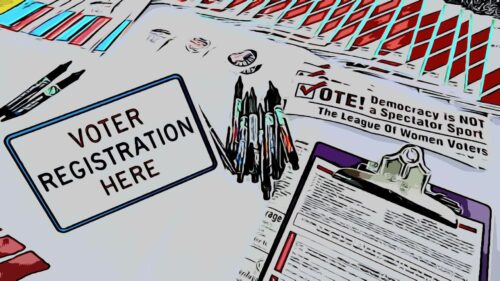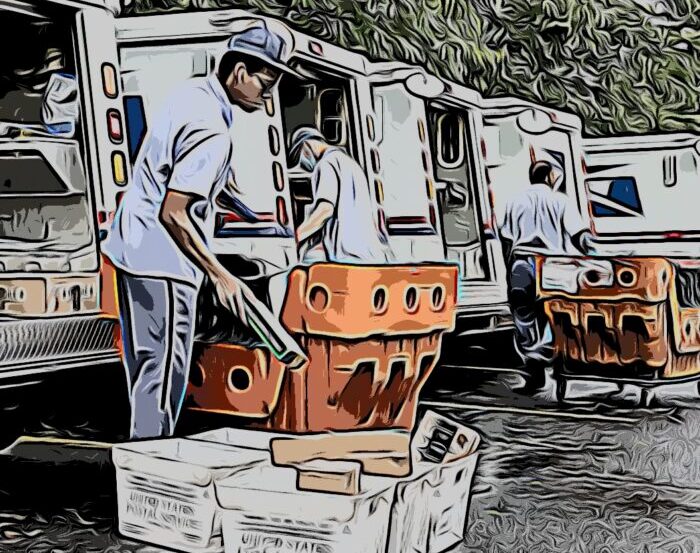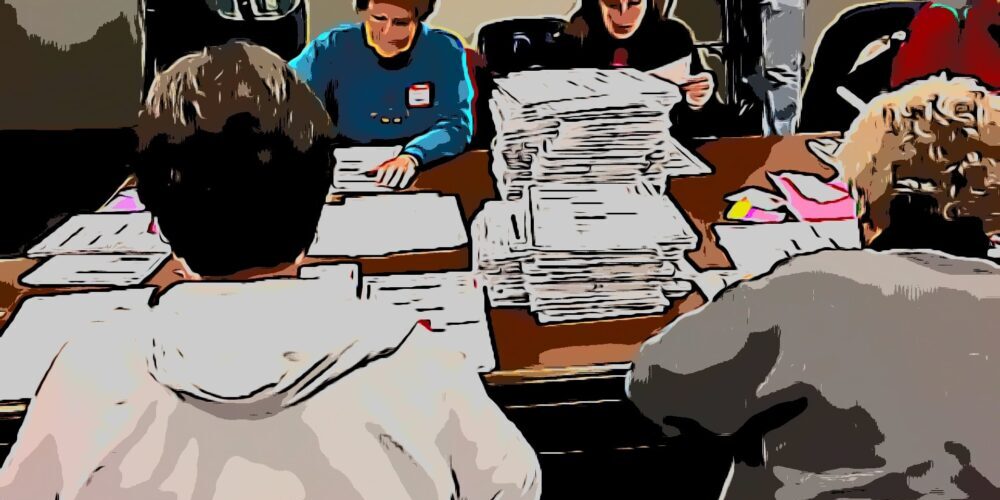Established by federal law in the National Voter Registration Act of 1993 (NVRA), current voter rolls are state centralized databases of voter records used to carry out an election. This article will deal mainly with the problems and complex nature of the present system in general, and why, in particular to WA, it is inherently flawed.
Complexity
Complexity is one of the prime ingredients necessary for those looking to commit fraud. As such, due to the complexity of voter rolls and their maintenance, they are very likely to be prime targets for those wishing to control elections through corrupt means. What makes voter rolls complex? For one they are tables of data for millions of voters’ registration info.
Trying to keep track and constantly purge and update changes of address, deaths, etc., for that amount of data is in itself quite a feat. The NVRA suggests using the National Change of Address (NCOA) process to help facilitate voter roll maintenance. However, each State is allowed to establish its own process as long as it is comparable to the NCOA process. From what I have observed in comparison to the NCOA process WA’s process is inadequate.

The NCOA Process
The way the NCOA process works in a nutshell is the NCOA is a database of change of addresses (COAs) submitted to the USPS. It also tracks undeliverable as addressed mail (UAA) and “Vacant” lot addresses. Those COAs, UAAs and Vacants are compared against a bulk mailing list and the addresses on the list that have entries in the NCOA are identified. The list is then streamlined to exclude those addresses on the mailing list that can be identified as invalid.
The obvious reason for using this process for the voter rolls is to ensure that, as much as possible, all legitimate addresses of legitimate voters receive a ballot, while at the same time illegitimate voter addresses do not. The problem with the WA process is, according to local election officials, during general elections it only addresses these issues after the fact of primary elections, not before.
Failing to update voter info in a primary can also spill over into general elections. That means voter statuses and residential addresses may not be updated properly and ballots may be sent when they shouldn’t be and/or they may get sent to wrong addresses of eligible and/or ineligible voters in both elections.
The point is that ballots being sent out that shouldn’t be can end up being used nefariously. A whole separate article is needed just to deal with this process of maintaining voter roll integrity. Suffice it to say that just the maintenance process itself is quite complex. There’s also the issue of the voter roll database being online.
Voter Rolls Online and Other Problems
Any time you have data that’s accessible online there is a risk that hackers can get in and manipulate it. When you consider how important it is to protect our system of voting in order to maintain a government “of the people, by the people and for the people,” it’s essential to have a system that is protected from bad actors both foreign and domestic.
Unfortunately in the world of cyber security, no matter how many security measures are implemented, there are myriad of breaches nationwide that happen even in the most secure situations. Even the DOD has breaches. Due to how manipulating elections can have extremely detrimental political outcomes, our voter rolls would be a prime target for not only foreign adversaries, but essentially all hackers, including the most sophisticated.
What could be loosely referred to as database latency is also a big problem. The fact that the public only has access to monthly updates to the rolls means that in between that time anything could happen and the public would have no real way to know about it. The laws dealing with voter rolls and their maintenance are also relatively complex. If this happens then change the status to inactive. If this happens change them back to active. If this happens purge them from the rolls, and so on and so forth.
Complexity of Laws
Here you’ll find various election laws on voters and registrations. The sections on LIST MAINTENANCE are the main laws dealing with voter roll maintenance. TRANSFERS AND NAME CHANGES, and CANCELLATIONS are also applicable. Then there are the WACs on forwarded ballots and replacement ballots that apply as well. And there are probably other laws not listed here that would apply to specific situations.
The public for the most part lacks the time, knowledge, and/or ability needed to look into all of these complex aspects of the voter rolls alone. What about all of the other myriad of aspects in the elections systems overall that haven’t been mentioned here? How can the public have confidence that what’s happening with our elections provides the necessary framework to ensure free and fair elections if they can’t understand how the system works to begin with?
They simply are almost totally at the mercy of the government and private corporations as to whether or not elections are on the up and up. However, the way our system of government is meant to work is the people are supposed to be in control and able to hold government officials accountable in order to maintain constitutionally guaranteed rights of freedom and liberty. Isn’t it time to speak up about what appears to be an infringement of our constitutional rights?




